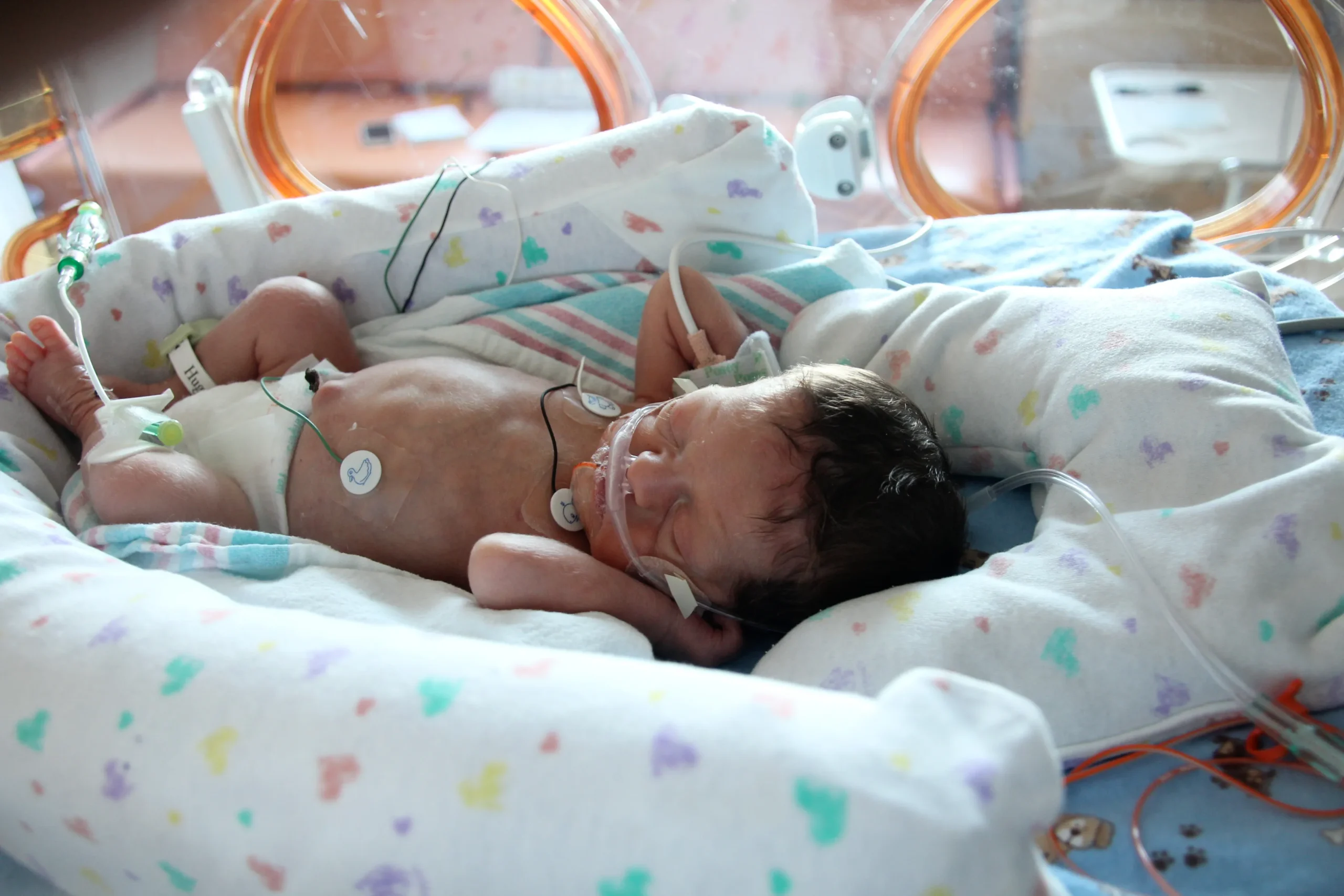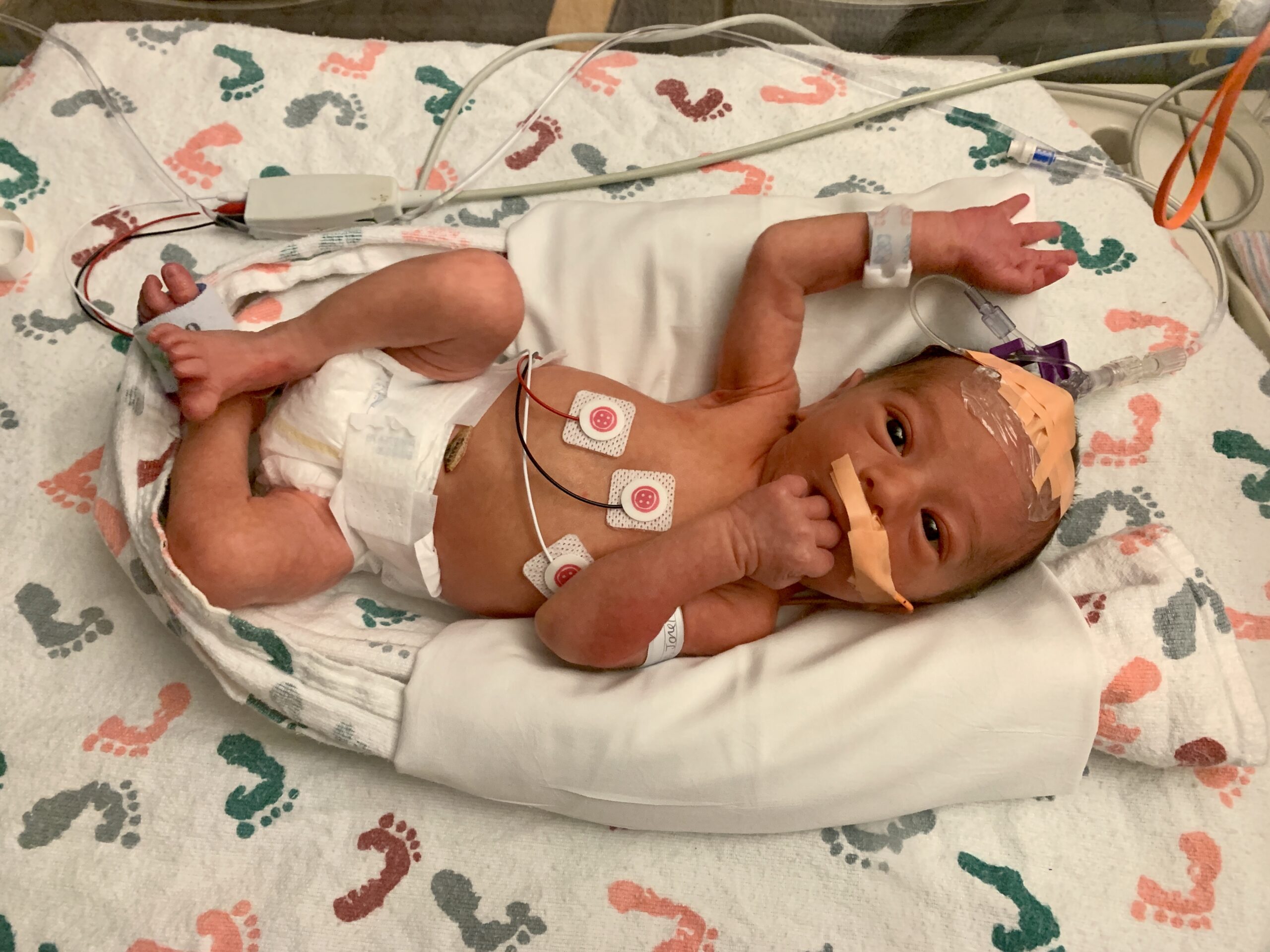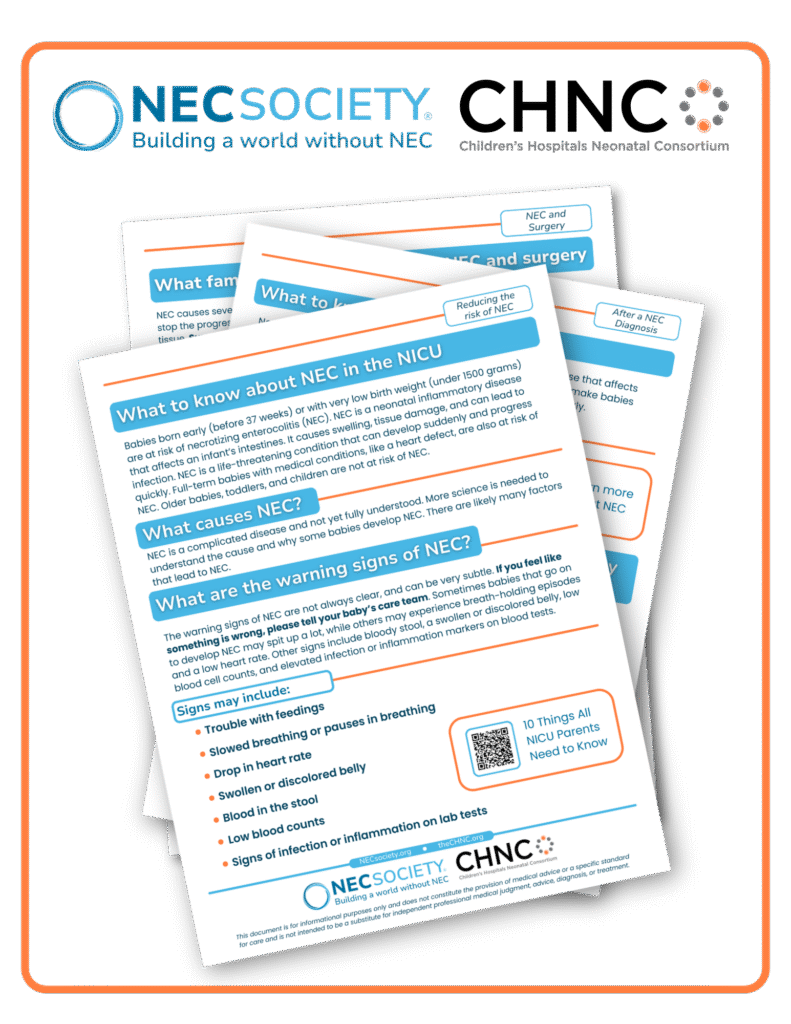What is NEC?
Necrotizing enterocolitis (NEC) is a devastating neonatal intestinal disease that can affect premature and medically fragile infants.
Teddy
Understanding Necrotizing Enterocolitis
Necrotizing enterocolitis (NEC) is a devastating neonatal intestinal disease that can affect infants in their first weeks and months of life. “Necrotizing” means the process of tissue death, and “enterocolitis” means inflammation of the small intestine or colon. Babies who are born prematurely or with a medical condition, like a congenital heart defect, are most at risk of NEC, but sometimes full-term babies also develop NEC.
Stages of NEC:
- Stage 1: Suspected NEC – Infant shows signs of feeding problems and illness.
- Stage 2: Definite NEC – Tests like X-rays or ultrasounds show gas in the walls of the intestines.
- Stage 3: Advanced NEC – Infant shows signs of severe illness and may need surgery on their intestines.
What causes NEC?
NEC is multifactorial, and there is no single cause. More research is needed to fully understand why NEC occurs, when NEC occurs, and how NEC occurs. Factors that increase the risk for NEC include premature birth, low birth weight (less than 1500 grams at birth), absence of mother’s (or donor) milk, and severe anemia.

What are the warning signs of NEC?
The warning signs of NEC are not always clear, and can be very subtle, including:
- Trouble with feedings
- Slowed breathing or pauses in breathing
- Drop in heart rate
- Swollen or discolored belly
- Blood in the stool
- Low blood counts
- Signs of infection or inflammation on lab tests

How to Reduce the Risk of NEC
More science is needed to understand how to prevent and treat NEC. Right now, we cannot eliminate the risks of NEC, but mother’s breastmilk provides the most protection against NEC. When mother’s breastmilk is not available, pasteurized donor human milk provides the next best protection against NEC. The baby’s care team and a lactation consultant can help optimize mother’s milk supply, and access pasteurized donor human milk.
Human Milk and NEC
Is there any treatment for NEC?
More research is needed to develop better treatment options for NEC. Right now, there are no treatments to cure NEC. Treatment for NEC depends on how the baby is doing. Because NEC is a life-threatening condition that can progress quickly, the baby’s doctor may first stop feedings and give the infant nutrition through an IV, called Total Parenteral Nutrition (TPN). The baby may also get antibiotics and have regular lab tests, x-rays, or ultrasounds to check for changes.
Some babies get very sick, very fast when they develop NEC, and may need to have surgery to remove the affected intestinal tissue. Surgery can help improve the child’s ability to thrive after their NEC diagnosis.
What are the long-term outcomes of NEC?
Babies can thrive after a NEC diagnosis. Sometimes, babies do not have any long-term complications when they go home from the NICU after being diagnosed with NEC. Othertimes, babies experience mild to severe life-altering complications after they have been home from the NICU for weeks, months, or even years.
Learn more: Long-term outcomes and life-impacts of necrotizing enterocolitis: A survey of survivors and parents
Long-term Outcomes

We have Family Resource Boxes with information for families affected by NEC. Materials in the box empower families so they can engage as the most important members of their baby’s care team.
More resources on NEC
The NEC Society, in partnership with the Children’s Hospitals Neonatal Consortium (CHNC) NEC Focus Group, is proud to share resources on necrotizing enterocolitis (NEC) for NICU families and families impacted by NEC.

Additional Resources
Learning about NEC can help babies and families thrive. We are working hard to empower clinicians, scientists, and families with evidence-based information about NEC. Explore our resources and reach out with questions.
Tragically, some babies pass away from NEC. We hope families who have experienced the devastation of child loss from NEC will find a sense of connection and community within the NEC Society. Find resources for bereaved families here.







